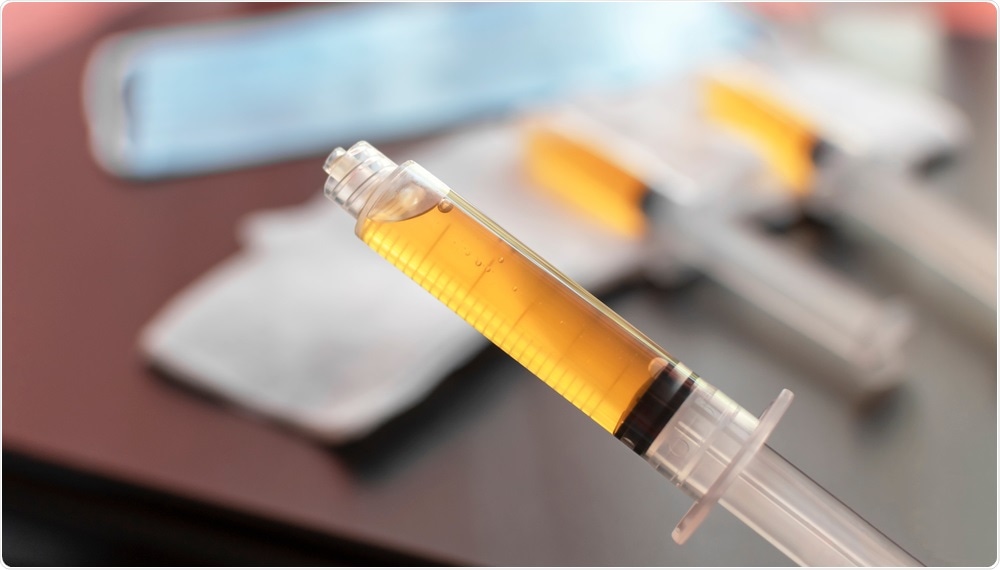To date, the coronavirus disease 2019 (COVID-19) pandemic has claimed more than 38 million lives worldwide. Scientists around the world have developed vaccines and various therapeutics such as immunomodulatory therapeutics, antiviral drugs, and passive antibody therapies for the treatment of COVID-19. Some of the passive antibody therapeutics which have been evaluated for their effectiveness against COVID-19 disease include convalescent plasma, hyper-immune globulin, and monoclonal antibodies.

Convalescent Plasma Therapy. Image Credit: https://www.medrxiv.org/content/10.1101/2021.06.14.21258910v1
Convalescent plasma therapy
Before the development of antimicrobial therapies, convalescent plasma therapy was used for the treatment of many viral and non-viral infectious diseases. For severe acute respiratory syndrome coronavirus 2 (SARS-CoV-2), passive antibody therapy with convalescent plasma could offer protection via viral neutralization, by other strategies such as enhanced phagocytosis and antigen processing of virions.
Scientists have evaluated the effectiveness of the convalescent plasma therapy for other coronaviruses such as SARS-CoV. They have reported that convalescent plasma comprising neutralizing antibodies for the specific virus may offer therapeutic benefits to severely infected patients. More recently, researchers have obtained positive results while studying the effectiveness of COVID-19 convalescent plasma (CCP) therapy for treating hospitalized COVID-19 patients.
However, several studies including randomized, open-label trials have indicated no clinical benefits by CCP therapy in severely infected COVID-19 patients. Each study revealed a range of strengths and weaknesses in terms of the study design, the study group including participants of different ethnicity, and lack of appropriate data, etc., which are required to bring better clarity on the use of CCP as a potential COVID-19 therapeutics approach.
A new study
A new study has been published in medRxiv* preprint server which focuses on the evaluation of the outcomes of severely infected hospitalized COVID-19 patients who were treated with CCP therapy in a prospective, observational, and multicenter trial.
Researchers of this study used a multi-center trial design across 16 academic and non-academic hospitals in Colorado from April 2020 through August 2020. They assessed the levels of plasma antibodies after the trial. Additionally, the CCP-treated and untreated COVID-19 hospitalized patients were assessed via propensity scores, the estimated duration of hospitalization, and the inpatient mortality rate in COVID-19 patients treated with CCP.
Researchers of this study have evaluated the effectiveness of the CCP treatment by observing COVID-19 hospitalized patients who were given CCP treatments and those who received other treatments. This study revealed no significant change in terms of the duration of hospital stay or mortality rates of inpatients, in COVID-19 hospitalized patients who were given CCP treatment.
Further, no promising improvements in clinical symptoms were observed. As hospital discharge is referred to as a positive outcome, meaning the patient has recovered, the fact that CCP treatment lowered the number of hospital discharges reveals that CCP treatment has a negative effect on the prognosis of study participants.
Researchers have also indicated that CCP treatment does not have a statistically significant effect on the inpatient mortality rate owing to a limited number of inpatient deaths in the study group.
Other studies
Several studies have also reported the positive impact of CCP therapy in hospitalized COVID-19 patients. For instance, a propensity-matched study which was carried out at Houston Methodist Hospital reported a significant decrease in mortality rate in CCP treated patients, where the plasma (anti-RBD IgG titer of >1:1350.) was transfused within 72 hours of admission. However, researchers revealed no significant improvement in the mortality rate for the patients who were treated with RBD IgG titer of <1:1350 or were cannulated at the time of admission.
Another study was conducted by the Mayo Clinic that included a cohort of 3082 patients. The non-mechanically ventilated patients who were treated with high titer plasma showed a lower mortality rate compared to patients who received a low titer plasma. Several randomized studies of CCP therapy for COVID-19 hospitalized patients also reported no clinical benefits.
A study was conducted in Argentina that involved older adults treated with CCP within 72 hours after the onset of COVID-19 symptoms, suggested lowering of risk of disease progression in treated patients. The PLACID trial that was conducted in India reported the absence of neutralizing antibodies in 20% of the transfused plasma.
The results
The results of the present study are in line with the outcomes of the previous studies and suggest that convalescent plasma transfusion has been well tolerated by severely infected patients. No major reaction to transfusions such as transfusion-associated acute lung injury or hemolytic reactions were observed. However, 4 of 239 patients (0.017%) have shown minor transfusion reactions.
One of the main advantages of this study is that it included participants from varied demographics and has analyzed a diverse cohort of patients. However, limitations of this study include the open-label, non-randomized study design, and the absence of a placebo control group.
*Important Notice
medRxiv publishes preliminary scientific reports that are not peer-reviewed and, therefore, should not be regarded as conclusive, guide clinical practice/health-related behavior, or treated as established information.
- Chauhan, L. et al. (2021). A Multi-center, Prospective, Observational-cohort controlled study of Clinical Outcomes following COVID-19 Convalescent plasma therapy in hospitalized COVID-19 patients. medRxiv 2021.06.14.21258910; doi: https://doi.org/10.1101/2021.06.14.21258910
Posted in: Medical Research News | Disease/Infection News | Healthcare News
Tags: Antibodies, Antibody, Antigen, CLARITY, Convalescent Plasma, Coronavirus, Coronavirus Disease COVID-19, Drugs, Hospital, Immunomodulatory, Infectious Diseases, Mortality, Pandemic, Phagocytosis, Placebo, Respiratory, SARS, SARS-CoV-2, Severe Acute Respiratory, Severe Acute Respiratory Syndrome, Syndrome, Therapeutics, Virus

Written by
Dr. Priyom Bose
Priyom holds a Ph.D. in Plant Biology and Biotechnology from the University of Madras, India. She is an active researcher and an experienced science writer. Priyom has also co-authored several original research articles that have been published in reputed peer-reviewed journals. She is also an avid reader and an amateur photographer.
Source: Read Full Article